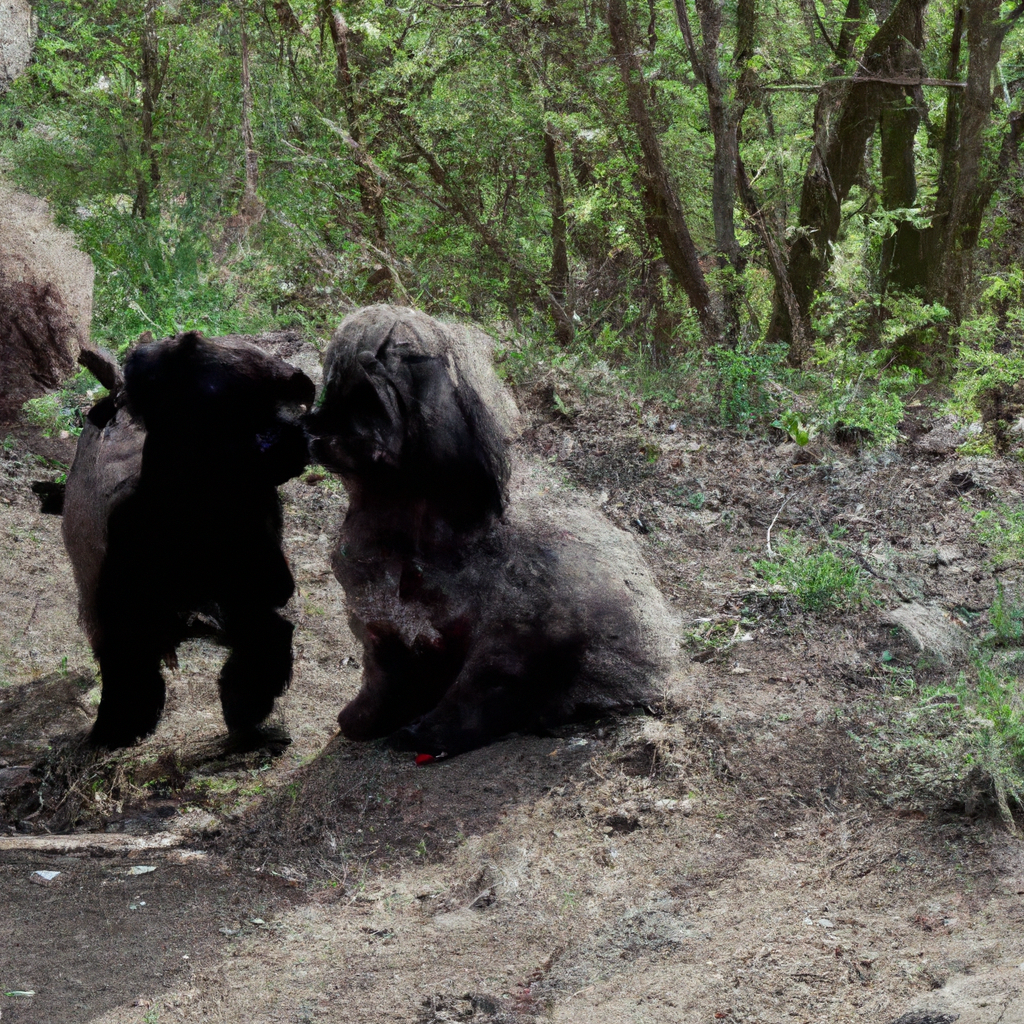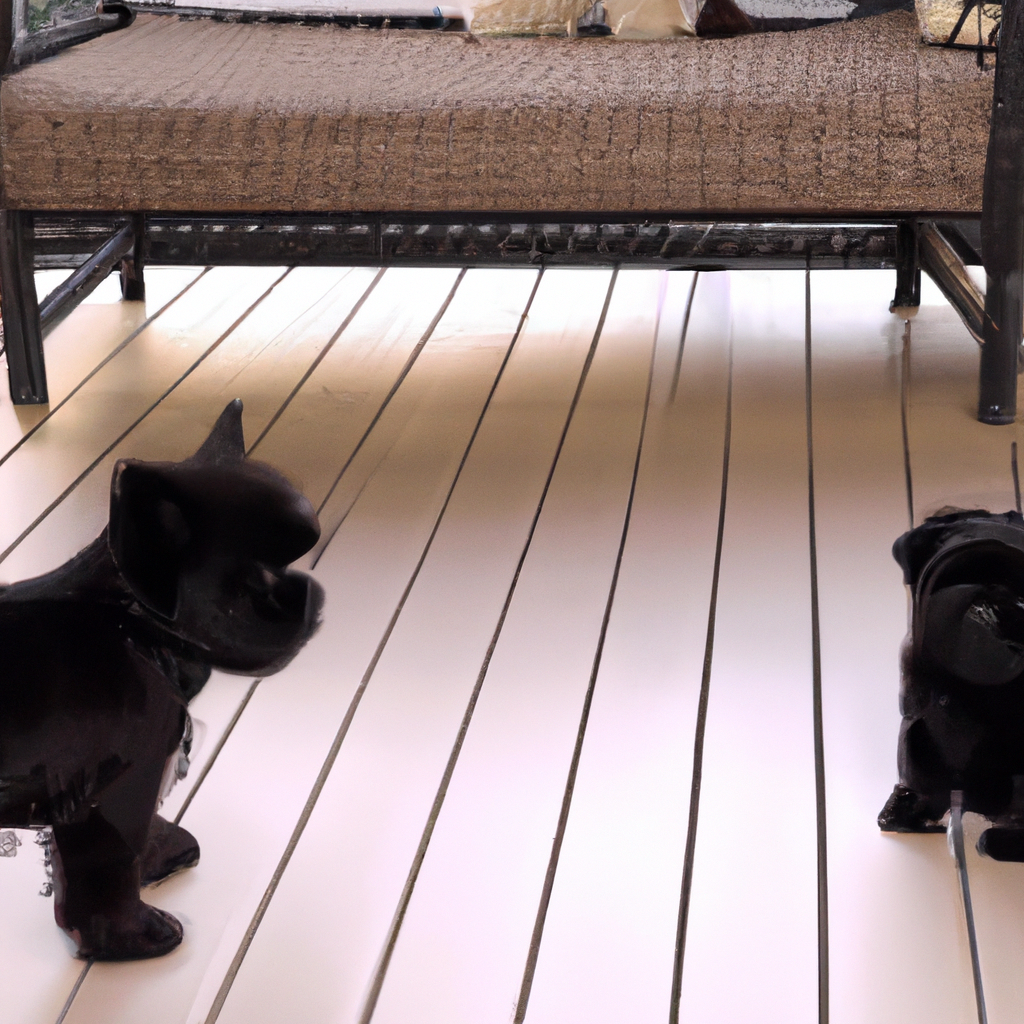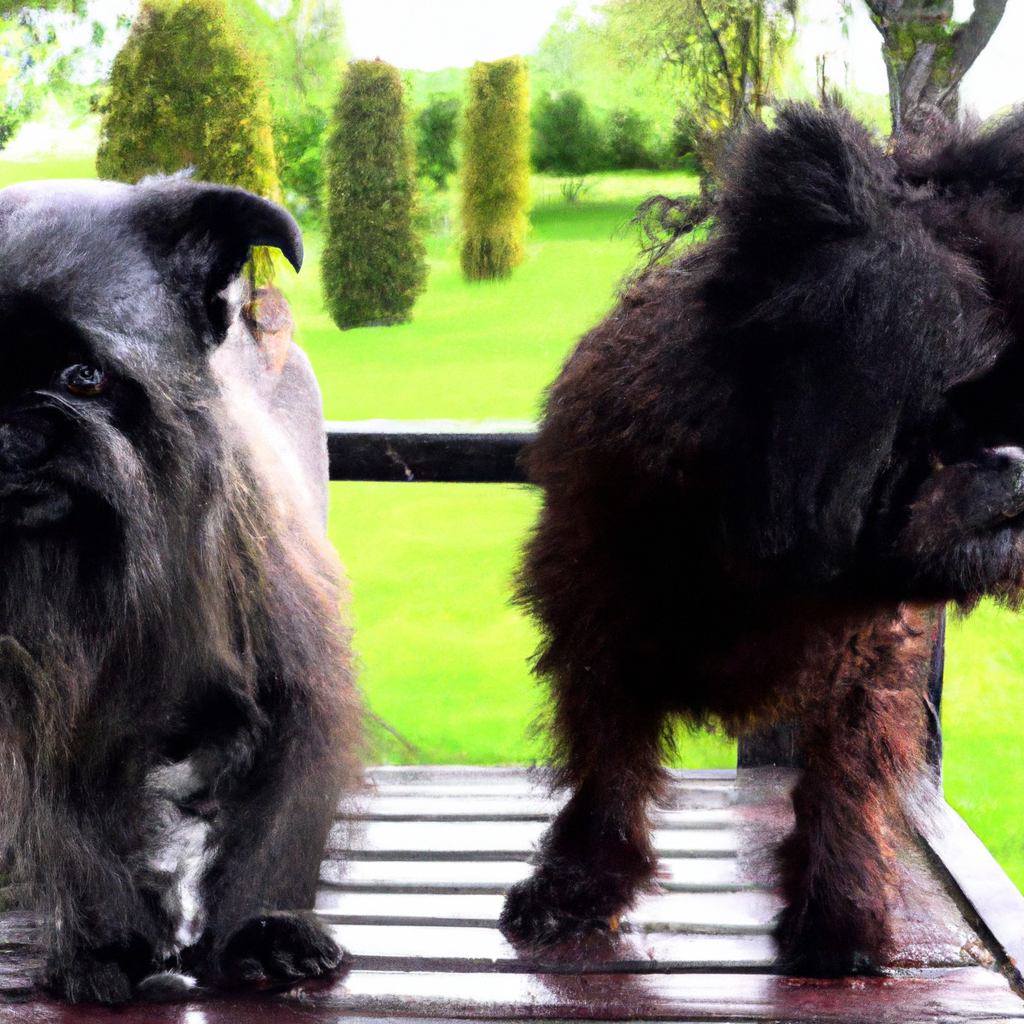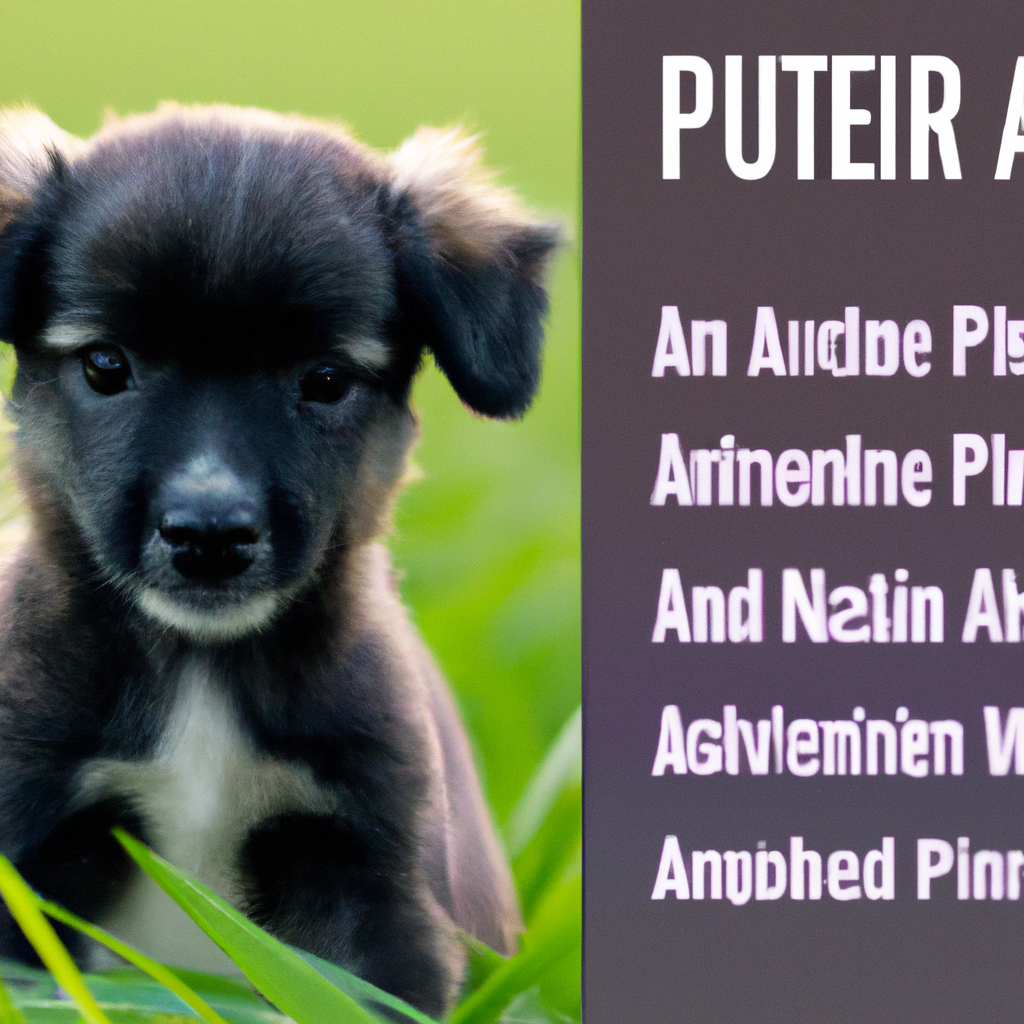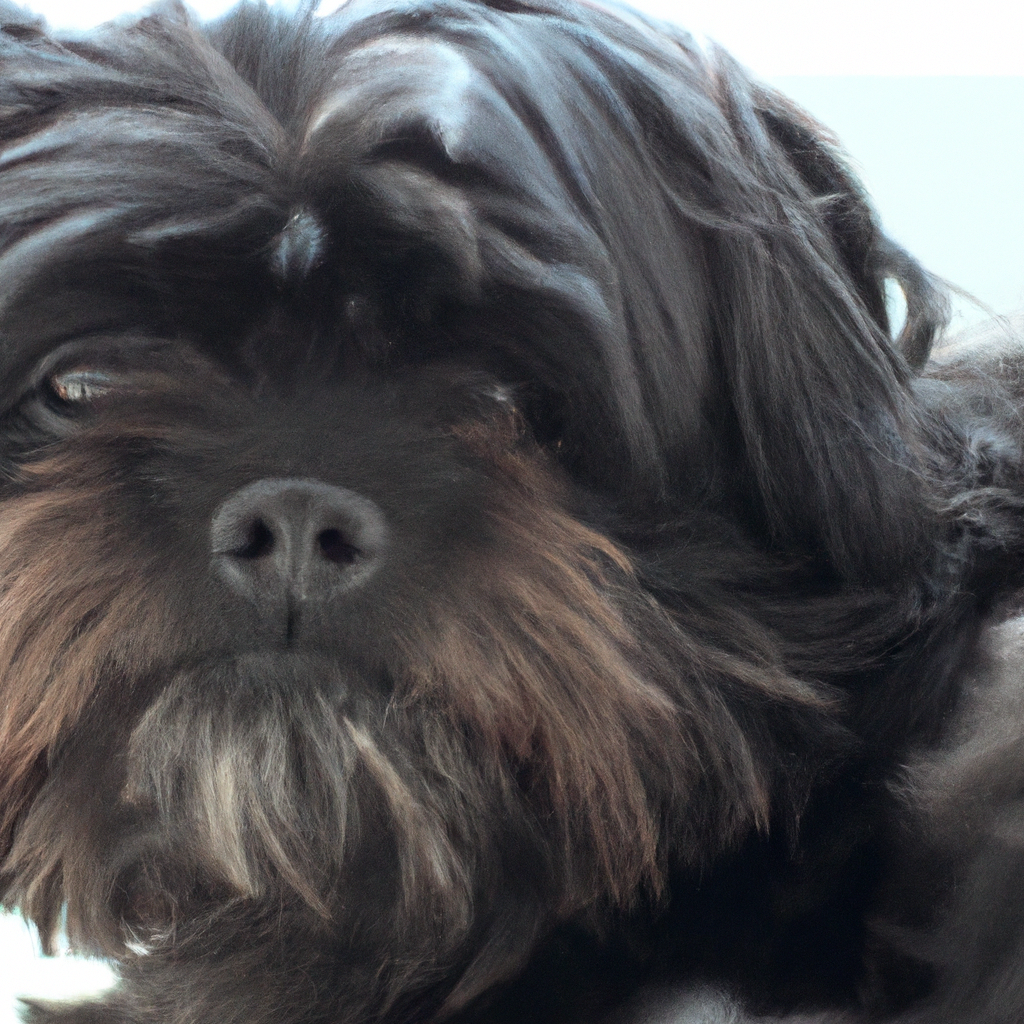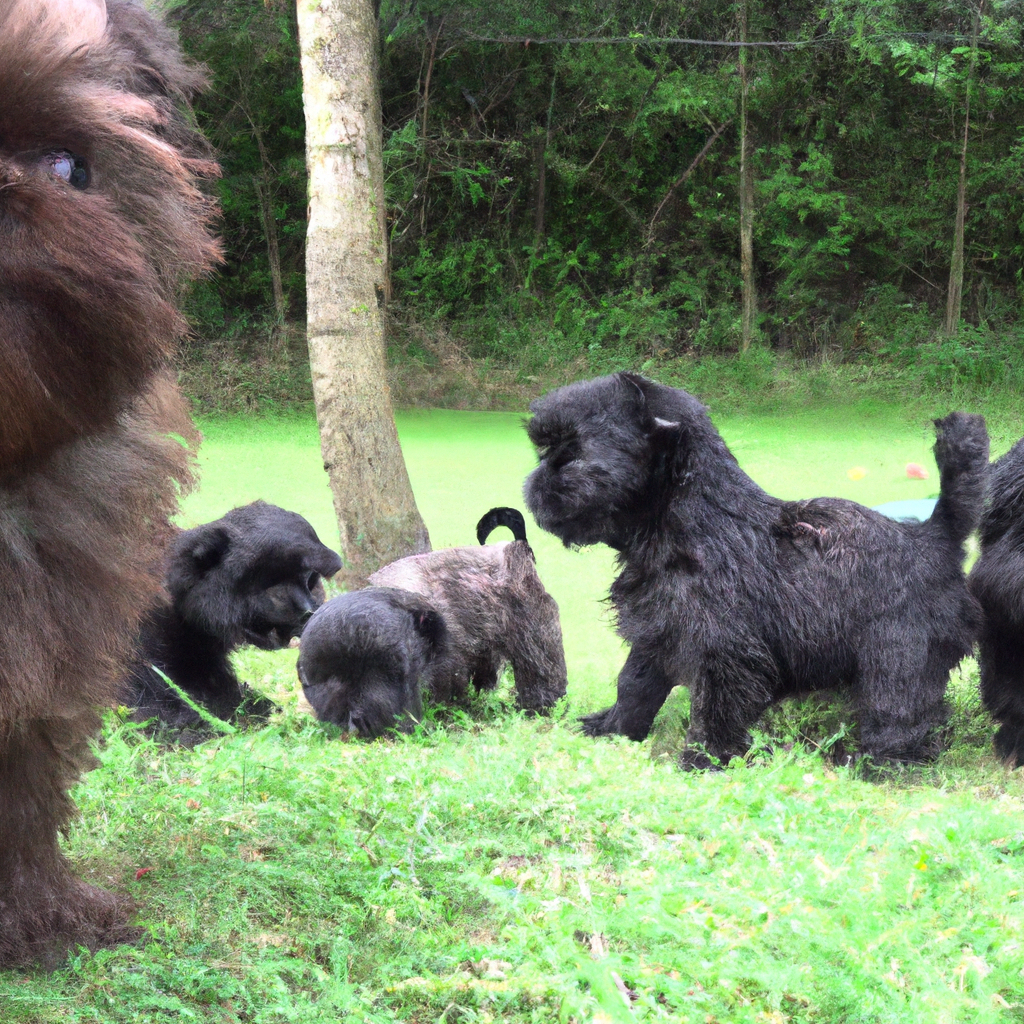The Affenpinscher, also known as the “Monkey Terrier” due to its primate-like appearance and personality, exhibits significant behavioral differences at various stages of its life. Puppies and adult Affenpinschers differ greatly in their behavior, reflecting their growth and development. Affenpinscher puppies are typically more energetic, curious, and playful, often requiring constant attention and training to manage their high energy levels and to shape their behavior. They are also more prone to engage in destructive behaviors if not properly trained. On the other hand, adult Affenpinschers, while still retaining some of their playful traits, are generally more calm and less energetic. They are more independent, often requiring less attention and supervision than their younger counterparts. However, their behavior can also be influenced by their training, socialization, and individual personality traits.
Understanding the Energy Levels: Puppies vs Adult Affenpinschers
Affenpinschers, often referred to as “Monkey Terriers” due to their distinct, primate-like facial features, are a small but mighty breed. Known for their spunky and adventurous spirit, these dogs are a bundle of energy and charm. However, the energy levels and behavioral patterns of Affenpinscher puppies and adults can vary significantly. Understanding these differences is crucial for potential owners to ensure they can provide the right environment and care for their furry friends.
Affenpinscher puppies are, as you might expect, full of youthful energy and curiosity. They are eager to explore their surroundings, often getting into mischief due to their inquisitive nature. This high energy level is not just for play; it’s also a critical part of their development. Puppies use this time to learn about the world around them, understand their boundaries, and develop their physical abilities. They require plenty of playtime and mental stimulation to keep them happy and healthy.
However, this boundless energy also means that Affenpinscher puppies can be quite a handful. They are known for their stubborn streak, which can make training a bit of a challenge. Patience and consistency are key when dealing with these feisty little ones. It’s also important to remember that despite their small size, Affenpinscher puppies need plenty of exercise to burn off their energy and prevent destructive behavior.
As Affenpinschers transition into adulthood, their energy levels start to decrease. This doesn’t mean they become lethargic or lose their playful spirit; they simply become less hyperactive. Adult Affenpinschers still enjoy a good play session and require regular exercise to maintain their health. However, they are generally more content to spend time relaxing with their owners and are less likely to get into mischief when left alone.
Behaviorally, adult Affenpinschers are more settled and predictable than their puppy counterparts. They have a better understanding of their boundaries and are less likely to test them. Training an adult Affenpinscher can be a more straightforward process as they are more likely to focus and less likely to be distracted by every new sight and smell. However, their stubborn streak remains, so a firm but gentle approach is still necessary.
Despite the decrease in energy levels, adult Affenpinschers still require mental stimulation. They are intelligent dogs that enjoy problem-solving and interactive games. Without proper mental stimulation, they can become bored and potentially develop behavioral issues.
In conclusion, while Affenpinscher puppies and adults share the same spunky spirit and charming personality, their energy levels and behavioral patterns differ significantly. Puppies are full of boundless energy and curiosity, requiring plenty of playtime, exercise, and patience during training. On the other hand, adult Affenpinschers are more settled and predictable, but still require regular exercise and mental stimulation. Understanding these differences can help potential owners provide the right care and environment for their Affenpinscher, whether they’re bringing home a playful puppy or a more settled adult.
Training Challenges: Behavioral Differences between Puppies and Adult Affenpinschers
Affenpinschers, often referred to as “Monkey Terriers” due to their distinct, primate-like facial features, are a small but spirited breed. Known for their playful and sometimes mischievous nature, these dogs can be a joy to have around. However, training them can present unique challenges, particularly when comparing the behavioral differences between Affenpinscher puppies and adults.
When you bring home an Affenpinscher puppy, you’ll quickly notice their boundless energy and curiosity. These little ones are eager to explore their surroundings, often leading to a few harmless mishaps. Their inquisitive nature, while endearing, can also make training a bit of a challenge. Puppies are easily distracted and may struggle to focus during training sessions. It’s important to keep these sessions short, engaging, and positive. Reward-based training methods work best with Affenpinscher puppies, as they respond well to treats and praise.
As Affenpinscher puppies grow, their behavior begins to change. Adolescence in Affenpinschers can be a challenging period, as they start to test boundaries and assert their independence. This is a crucial time for training, as it sets the foundation for their adult behavior. Consistency is key during this phase. It’s important to reinforce good behavior and discourage unwanted actions. Despite their stubborn streak, adolescent Affenpinschers are quick learners and can pick up new commands with regular practice.
Transitioning into adulthood, Affenpinschers become more settled and less hyperactive. However, they retain their playful spirit and can be quite stubborn at times. Adult Affenpinschers are known for their strong-willed nature, which can make training a bit of a challenge. They are intelligent dogs, but they have a tendency to be independent thinkers. This means they may not always follow commands, especially if they don’t see the point in doing so.
Training an adult Affenpinscher requires patience and understanding. It’s important to remember that these dogs are not being defiant out of spite, but rather because they have their own ideas about how things should be done. Positive reinforcement is still the most effective training method for adult Affenpinschers. However, it may take a bit more time and repetition for them to grasp new commands compared to their younger counterparts.
Despite the challenges, training an Affenpinscher can be a rewarding experience. These dogs are full of personality and can bring a lot of joy to their owners. Whether you’re training a curious puppy or a stubborn adult, it’s important to approach the process with patience and consistency. Remember, every dog is unique and will learn at their own pace.
In conclusion, while there are distinct behavioral differences between Affenpinscher puppies and adults, the key to successful training lies in understanding these differences and adapting your approach accordingly. With the right approach, you can help your Affenpinscher become a well-behaved and happy member of your family.
Socialization Skills: Comparing Puppies and Adult Affenpinschers
Affenpinschers, often referred to as “Monkey Terriers” due to their distinct, primate-like facial features, are a small but spirited breed. Known for their playful and sometimes mischievous nature, these dogs are a delight to have around. However, like any other breed, Affenpinschers exhibit different behaviors at different stages of their lives. This is particularly noticeable when comparing the socialization skills of Affenpinscher puppies and adults.
When it comes to socialization, Affenpinscher puppies are like sponges, soaking up every experience and interaction. They are naturally curious and eager to explore their surroundings, making them more open to meeting new people and animals. This is the stage where they learn about the world around them, and as such, they are more receptive to new experiences. They are also more likely to approach strangers without hesitation, making them appear more sociable than their adult counterparts.
However, this openness also means that Affenpinscher puppies can be more susceptible to negative experiences. If they have a bad encounter with another dog or a person, it can leave a lasting impression that may affect their future interactions. Therefore, it’s crucial to ensure that their early socialization experiences are positive and controlled.
On the other hand, adult Affenpinschers tend to be more reserved and cautious in their interactions. This is not to say that they are antisocial; rather, they are more selective about who they interact with. They have already formed their perceptions of the world and know what to expect from different situations. This can make them appear less friendly, but in reality, they are just more discerning.
Adult Affenpinschers are also more likely to exhibit territorial behavior. They are protective of their space and their family, and they may react negatively to unfamiliar people or animals encroaching on their territory. This is a natural instinct and is not necessarily a sign of aggression. However, it does mean that introductions to new people or pets should be done gradually and with care.
Despite these differences, both Affenpinscher puppies and adults are capable of forming strong bonds with their human families. They are loyal and affectionate, and they thrive on companionship. The key to successful socialization at any age is patience, understanding, and positive reinforcement.
It’s also worth noting that every Affenpinscher is unique, and their behavior can be influenced by a variety of factors, including their individual personality, upbringing, and environment. Therefore, while these generalizations can provide a useful starting point, they should not be taken as definitive rules.
In conclusion, while Affenpinscher puppies and adults may exhibit different socialization behaviors, both are capable of forming meaningful relationships with their human families and other pets. The key is to understand their unique needs and behaviors at each stage of their life and to provide them with the appropriate guidance and support. With the right approach, you can help your Affenpinscher develop into a well-adjusted and sociable companion, regardless of their age.
Sleeping Habits: Puppies vs Adult Affenpinschers
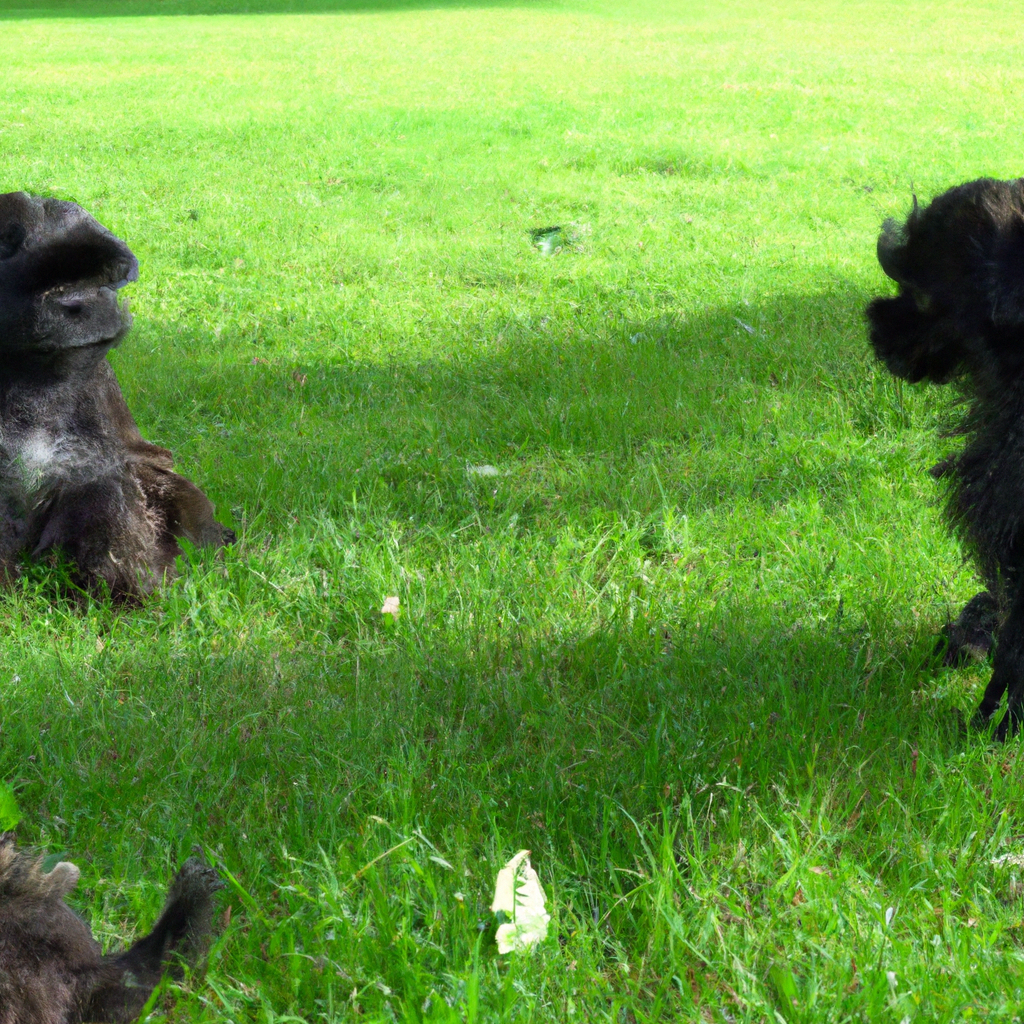
Affenpinschers, often referred to as “Monkey Terriers” due to their distinct, primate-like facial features, are a small breed of dog that originated in Germany. These dogs are known for their playful and adventurous nature, but their behavior can vary significantly depending on their age. In particular, the sleeping habits of Affenpinscher puppies and adults are markedly different, and understanding these differences can be crucial for potential owners.
When it comes to Affenpinscher puppies, they are much like human babies in their need for sleep. Puppies are known to sleep for up to 20 hours a day, a fact that often surprises new owners. This is because sleep is essential for their growth and development. During sleep, puppies process everything they’ve learned during their waking hours, which helps them grow into well-adjusted adult dogs. However, their sleep is not continuous. Puppies tend to sleep in short bursts throughout the day and night, waking up frequently for feeding and playtime.
Transitioning from this, it’s important to note that as Affenpinscher puppies grow and mature, their sleeping habits begin to change. By the time they reach adulthood, their sleep patterns become more consolidated and they start to sleep more at night, aligning more closely with the sleep patterns of their human companions. Adult Affenpinschers typically sleep for about 12 to 14 hours a day, with the majority of this sleep occurring at night.
However, it’s not just the amount of sleep that changes as Affenpinschers mature. The quality of their sleep changes as well. While puppies may seem to be in a deep sleep, they actually spend a lot of time in REM sleep, which is a lighter stage of sleep characterized by rapid eye movement and dreaming. As Affenpinschers grow into adulthood, they spend less time in REM sleep and more time in deep, restorative sleep. This shift in sleep stages is thought to be linked to the decreased need for processing new information and the increased need for physical recovery.
Moreover, adult Affenpinschers are more likely to have established sleeping spots. While puppies may fall asleep anywhere, anytime, adult dogs often have preferred places to sleep. These can range from a specific spot on the couch to a designated dog bed. This preference for certain sleeping spots is part of an adult Affenpinscher’s territorial nature and can also be a sign of their comfort and security in their home environment.
In conclusion, the sleeping habits of Affenpinschers change significantly as they transition from puppyhood to adulthood. From the amount and quality of sleep to the preferred sleeping spots, these changes reflect the different needs and behaviors of puppies and adult dogs. Understanding these differences can help owners provide the best care for their Affenpinschers at every stage of their lives. So, whether you’re snuggling up with a sleepy Affenpinscher puppy or sharing your home with an adult dog, remember that their sleep is an essential part of their health and well-being.
Feeding Requirements: Differences between Puppies and Adult Affenpinschers
Affenpinschers, often referred to as “Monkey Terriers” due to their distinct primate-like appearance, are a small but mighty breed. Known for their playful and adventurous nature, these dogs are a joy to have around. However, when it comes to feeding, the requirements for Affenpinscher puppies and adults differ significantly. Understanding these differences is crucial for maintaining their health and vitality.
When you bring home an Affenpinscher puppy, you’re welcoming a bundle of energy. These little ones are always on the move, exploring their surroundings, and burning calories at a rapid rate. Consequently, their nutritional needs are higher compared to their adult counterparts. Puppies require a diet rich in protein to support their rapid growth and development. They also need a good balance of vitamins and minerals to ensure their bones and teeth develop properly.
Feeding your Affenpinscher puppy multiple small meals throughout the day is recommended. This approach not only meets their high energy requirements but also prevents them from overeating, which can lead to obesity and other health issues later in life. It’s also important to remember that puppies have smaller stomachs, so they can’t consume large quantities of food at once.
Transitioning to the next stage, as your Affenpinscher grows into adulthood, their metabolism slows down, and so do their energy requirements. Adult Affenpinschers need a balanced diet, but with a lower calorie count compared to puppies. High-quality adult dog food that’s low in fat and rich in fiber is ideal for them. This helps maintain their weight and keeps their digestive system healthy.
Unlike puppies, adult Affenpinschers can handle larger meals. However, it’s still advisable to divide their daily food intake into two meals. This helps prevent bloating, a condition that small breeds like Affenpinschers are prone to. Also, feeding them at regular intervals helps maintain their blood sugar levels and keeps them satisfied throughout the day.
Another significant difference between feeding puppies and adult Affenpinschers is the type of food they can handle. Puppies have delicate digestive systems and need food that’s easy to digest. On the other hand, adult Affenpinschers can handle a wider variety of foods, including fruits and vegetables, which can be included in their diet for added nutrition.
While these guidelines provide a general idea of the feeding requirements for Affenpinscher puppies and adults, it’s important to remember that every dog is unique. Factors such as their activity level, health status, and individual preferences can influence their dietary needs. Therefore, it’s always best to consult with a vet or a pet nutrition expert to create a personalized feeding plan for your Affenpinscher.
In conclusion, understanding the behavioral differences in feeding between Affenpinscher puppies and adults is key to ensuring they receive the right nutrition at each stage of their life. By catering to their specific needs, you can help your Affenpinscher thrive and live a long, healthy life. After all, a well-fed Affenpinscher is a happy Affenpinscher!
Exercise Needs: How Puppies and Adult Affenpinschers Differ
Affenpinschers, often referred to as “Monkey Terriers” due to their distinct, primate-like facial features, are a small but spirited breed. Known for their playful and sometimes mischievous nature, these dogs are a joy to have around. However, it’s important to understand that the exercise needs of Affenpinscher puppies and adults can differ significantly.
When you bring home an Affenpinscher puppy, you’ll quickly notice their boundless energy. These little furballs are full of life and curiosity, eager to explore their surroundings and play with anything they can get their paws on. This high energy level means that Affenpinscher puppies require plenty of exercise to keep them healthy and happy. Regular play sessions, walks, and even puppy training classes can help burn off some of that puppy energy while also helping them learn important socialization skills.
However, it’s crucial to remember that while Affenpinscher puppies are energetic, they’re also small and delicate. Their bones are still growing, and too much exercise or the wrong kind of exercise can potentially cause harm. Avoid activities that involve a lot of jumping or hard running, as these can put too much strain on their developing bodies. Instead, opt for gentler forms of exercise like short walks or light play sessions.
As Affenpinschers transition into adulthood, their exercise needs change. Adult Affenpinschers still have a playful and energetic spirit, but they don’t have the same relentless energy as their puppy counterparts. They still require regular exercise to maintain their health and prevent obesity, a condition to which this breed is prone. However, the intensity and duration of these exercise sessions can be more than what a puppy can handle.
Adult Affenpinschers enjoy a good walk, but they also appreciate variety in their exercise routine. Mixing in activities like fetch, agility training, or even doggy dance classes can keep your Affenpinscher engaged and excited about exercise. It’s also important to remember that mental stimulation is just as important as physical exercise for this intelligent breed. Puzzle toys, training sessions, and interactive games can help keep your Affenpinscher’s mind sharp.
Despite their smaller size, adult Affenpinschers are surprisingly sturdy and can handle more vigorous exercise than you might expect. However, like all dogs, they should be monitored during exercise to ensure they’re not overexerting themselves. If your Affenpinscher seems tired or is panting heavily, it’s time to take a break.
In conclusion, while both Affenpinscher puppies and adults require regular exercise, the type and amount of exercise they need can vary. Puppies are bundles of energy but need to be handled with care to avoid injury. Adults, on the other hand, can handle more vigorous exercise and benefit from a varied routine that includes both physical and mental stimulation. By understanding these differences, you can ensure that your Affenpinscher, whether a sprightly puppy or a mature adult, gets the exercise they need to stay healthy and happy.
Behavioral Changes: From Affenpinscher Puppy to Adult
Affenpinschers, often referred to as “Monkey Terriers” due to their distinct, monkey-like facial expressions, are a small breed of dog that originated in Germany. These dogs are known for their playful and adventurous nature, but their behavior can change significantly as they transition from puppies to adults. Understanding these behavioral differences can help you better care for your Affenpinscher at every stage of its life.
When Affenpinscher puppies are born, they are naturally curious and full of energy. They love to explore their surroundings, often getting into mischief due to their adventurous spirit. This is a critical time for socialization, as the experiences they have during this period can significantly influence their behavior as adults. Puppies are also more likely to engage in play biting, a behavior that should be discouraged to prevent it from becoming a habit.
As Affenpinscher puppies grow, they begin to exhibit a strong protective instinct. This is a trait that is deeply ingrained in their nature, as they were originally bred to hunt rats and other pests. While this protective instinct can make them excellent watchdogs, it can also lead to aggressive behavior if not properly managed. Training and socialization are crucial during this stage to ensure that your Affenpinscher learns to control its protective instincts.
Affenpinscher puppies are also known for their high energy levels. They require plenty of exercise and mental stimulation to keep them happy and healthy. However, as they transition into adulthood, their energy levels tend to decrease. Adult Affenpinschers are still active and playful, but they are less likely to engage in the hyperactive behavior often seen in puppies.
One of the most significant behavioral changes that occur as Affenpinschers mature is an increase in independence. While puppies are often eager to please their owners and seek their approval, adult Affenpinschers are more self-reliant. They are confident and assertive, often preferring to do things their own way. This can sometimes be a challenge for owners, as it can make training more difficult. However, with patience and consistency, you can teach your Affenpinscher to follow commands and behave appropriately.
Despite their increased independence, adult Affenpinschers are still very loyal and affectionate towards their owners. They form strong bonds with their families and are known for their loving nature. They also tend to be more patient and tolerant, making them excellent companions for families with children.
In conclusion, while Affenpinscher puppies and adults share many traits, there are also significant behavioral differences between the two stages. Puppies are curious, energetic, and eager to please, while adults are more independent, protective, and patient. Understanding these differences can help you provide the best care for your Affenpinscher, whether it’s a playful puppy or a mature adult. Remember, every dog is unique, and your Affenpinscher’s behavior may not perfectly align with these general trends. However, knowing what to expect can help you navigate the joys and challenges of raising an Affenpinscher.
Affenpinscher Temperament: Puppies vs Adults
Affenpinschers, often referred to as “Monkey Terriers” due to their distinct, primate-like facial features, are a unique breed of toy dogs that are known for their lively and adventurous spirit. However, like any other breed, the temperament of Affenpinschers can vary significantly between puppies and adults. Understanding these behavioral differences is crucial for potential owners to ensure they can provide the right environment and care for their furry friends.
Affenpinscher puppies are bundles of energy, always on the move and eager to explore their surroundings. They are naturally curious and love to play, making them a delightful addition to any family. However, this high energy level also means they require plenty of mental and physical stimulation to prevent them from becoming bored and potentially destructive. Puppies are also more prone to testing boundaries as they learn about their world, which can sometimes lead to stubborn or mischievous behavior.
In contrast, adult Affenpinschers are typically more settled and less hyperactive, although they still retain a playful streak. They are known for their loyalty and can be quite protective of their families, making them excellent watchdogs despite their small size. Adults are also more likely to display a strong sense of independence and can be somewhat aloof with strangers. However, they are generally sociable dogs that enjoy being part of the family activities.
Training is another area where differences between puppies and adult Affenpinschers become apparent. Puppies are like sponges, eager to learn and absorb new information. This makes them relatively easy to train, provided you use positive reinforcement techniques and maintain consistency. However, their short attention spans can sometimes make training sessions a challenge.
On the other hand, adult Affenpinschers can be a bit more set in their ways. While they are still trainable, it may take a bit more patience and persistence to teach them new commands or break them of any bad habits they may have picked up. It’s important to remember that Affenpinschers, regardless of their age, respond best to training methods that are fun and engaging, rather than harsh or punitive.
Socialization is another key aspect of an Affenpinscher’s temperament. Puppies are typically more open to meeting new people and animals, which makes early socialization crucial. This helps them grow into well-rounded adults that are comfortable in a variety of situations. Adult Affenpinschers, while generally sociable, can be a bit more reserved, especially around unfamiliar people or animals. However, with proper socialization, they can learn to be more accepting of new experiences.
In conclusion, while there are distinct behavioral differences between Affenpinscher puppies and adults, both stages of life offer their own unique joys and challenges. Puppies bring a whirlwind of energy and curiosity, while adults offer loyalty and a more settled temperament. Regardless of their age, Affenpinschers are charming, spirited companions that are sure to bring a touch of adventure to your life. Understanding their behavioral differences will help you provide the best care for your Affenpinscher, ensuring a happy and healthy life for your furry friend.In conclusion, behavioral differences between puppies and adult Affenpinschers are significant. Puppies are generally more energetic, curious, and require more attention and training. They are also more prone to chewing and may require more socialization. Adult Affenpinschers, on the other hand, are typically calmer, more independent, and have established behavior patterns. They are less likely to chew on items and usually require less socialization and training. However, their behavior can also be influenced by their past experiences and training.
